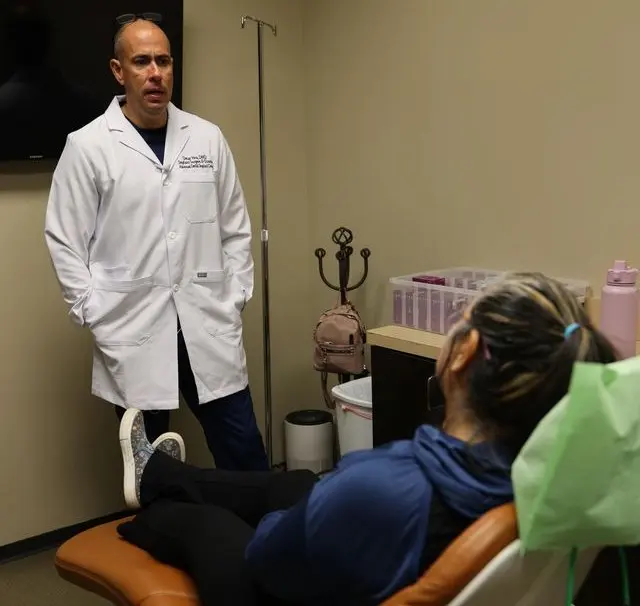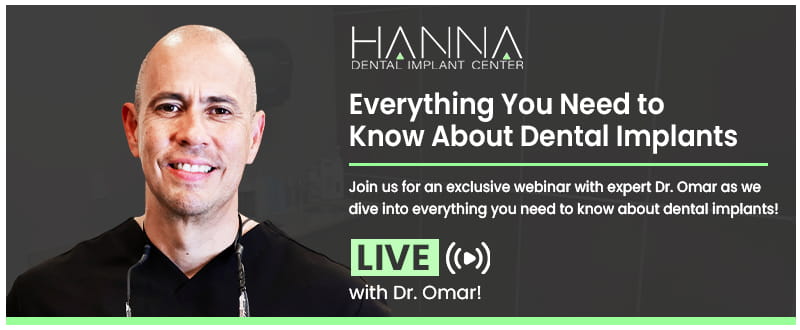A smile often makes the strongest first impression, yet changes in your teeth can affect how confident you feel sharing it. When a tooth is lost, the surrounding teeth slowly begin to move, creating spaces, overlaps, and bite problems that may alter both appearance and dental health.
Many people wonder how to stop this from happening and if it’s possible to keep teeth aligned after a loss. The good news is, with the right care and timely treatment, you can prevent shifting and protect your smile for the long run.
Read on to learn why teeth shift after a loss, the early signs to watch for, and the steps you can take to protect your smile.
Key Takeaways
- Missing teeth can cause neighboring teeth to drift, leading to misalignment and bite problems.
- Shifting teeth affects both your smile and your ability to chew and speak properly.
- Preventive steps, such as implants, bridges, and retainers, help keep your teeth stable.
- Maintaining good oral hygiene and scheduling regular dental visits can help reduce the risk of complications.
- Acting early saves you from more complex treatments later and preserves your confidence.
Don’t wait for teeth to drift.
-
Get $350 free consultation & CT scan
Why Do Teeth Shift After Tooth Loss?
Every tooth in your mouth works like a placeholder, keeping the others balanced and in line. Once a tooth is lost, the surrounding teeth lose their support and begin to shift into the empty space. This gradual shift may not be obvious at first, but over time it can lead to gaps, crowding, and even changes in how your bite comes together.
The jawbone also plays a role. Without the stimulation of a tooth root, the bone in that area begins to shrink. As the bone thins, it creates even less support for neighboring teeth, making them more likely to drift. Small changes can add up, affecting not only your smile but also your ability to chew and speak comfortably.
Early Signs Your Teeth Are Starting to Shift
Shifting teeth rarely happens overnight. The changes build slowly, but there are warning signs you can look out for:
- New gaps or crowding
- You start to notice a chipped tooth
- You also start to notice changes in your bite
- Food is easily trapped between your teeth
- Gums begin to shift
- Increased sensitivity when you drink cold or hot water
Catching these changes early gives you a better chance of protecting your smile before the movement becomes harder to correct.
What Happens if You Ignore Shifting Teeth
When teeth begin to move and nothing is done to stop it, the impact goes far beyond appearance. As alignment changes, the pressure on your bite becomes uneven. This extra strain can cause certain teeth to wear down faster, chip more easily, and lose their natural strength over time.
Shifting teeth also creates problems with the way your bite fits together. Many people start to notice jaw discomfort, tension headaches, or even early signs of TMJ disorders.
When teeth overlap or crowd, it becomes significantly more challenging to keep them clean. Plaque and bacteria accumulate in hidden spaces, increasing the risk of gum disease and tooth decay.
The effects don’t stop there. Poor alignment makes chewing less efficient, which can put added stress on your digestive system. And perhaps most noticeably, changes to the look of your smile can gradually lower your confidence.
What starts as a small shift in position may eventually make you hesitant to smile or laugh openly.
How to Prevent Teeth From Shifting After Tooth Loss
Protecting your smile after losing a tooth is all about giving your remaining teeth the stability they need to function properly.
While dental bridges and dentures help restore your smile visually, the lack of jawbone stimulation means a person’s facial shape and teeth will still begin to shift. The only solution that prevents jawbone deterioration and the resultant changes in appearance and teeth alignment is a solution that stimulates the jawbone.
Dental Implants Prevent Shifting Teeth after Tooth Loss
Dental implants provide the most reliable solution. A small implant post is placed in the jawbone, acting like the root of a natural tooth. This keeps the bone healthy and strong while holding a replacement crown securely in place. Because implants blend in so naturally, they not only protect alignment but also restore confidence in your smile.
Protect Your Smile Before Shifting Starts
Losing a tooth can feel overwhelming, but letting your teeth shift will only create bigger challenges down the road. With the right treatment, you can protect your alignment, restore function, and keep your smile looking its best.
At Hanna Dental Implant Center, we specialize in solutions that not only replace missing teeth but also safeguard your long-term oral health. If you want to stop shifting before it starts, schedule a consultation with us now and take the first step toward lasting confidence.
Frequently Asked Questions
Why do teeth move after one goes missing?
When a tooth is lost, the surrounding teeth lose the natural support that kept them in place. Over time, they begin drifting toward the empty space. This movement may seem small at first, but it can lead to overlapping teeth, bite changes, and even gum issues if left unaddressed.
How soon should I replace a missing tooth?
It is best to replace a missing tooth as quickly as possible, ideally within the first few months. Acting early prevents nearby teeth from shifting and helps protect your jawbone from weakening. The longer you wait, the more complicated and costly the treatment may become.
Do implants or bridges help stop shifting?
Yes. Dental implants act like natural tooth roots, holding the jawbone and teeth stable. Bridges fill the gap left by missing teeth, preventing surrounding teeth from tilting or drifting. Both options restore function and protect long-term oral health.
Can retainers or spacers prevent movement?
In certain cases, dental specialists may recommend retainers or spacers to keep teeth in position while you prepare for a permanent solution. These devices act as a temporary barrier against shifting but should not be seen as long-term substitutes for implants or bridges.
What are the long-term risks of not replacing a tooth?
Leaving a missing tooth untreated can trigger a chain reaction: teeth misalignment, gum disease, bite problems, bone loss, and even changes to your facial shape. Beyond oral health, poor chewing can affect digestion and nutrition, making tooth replacement essential for overall well-being.



